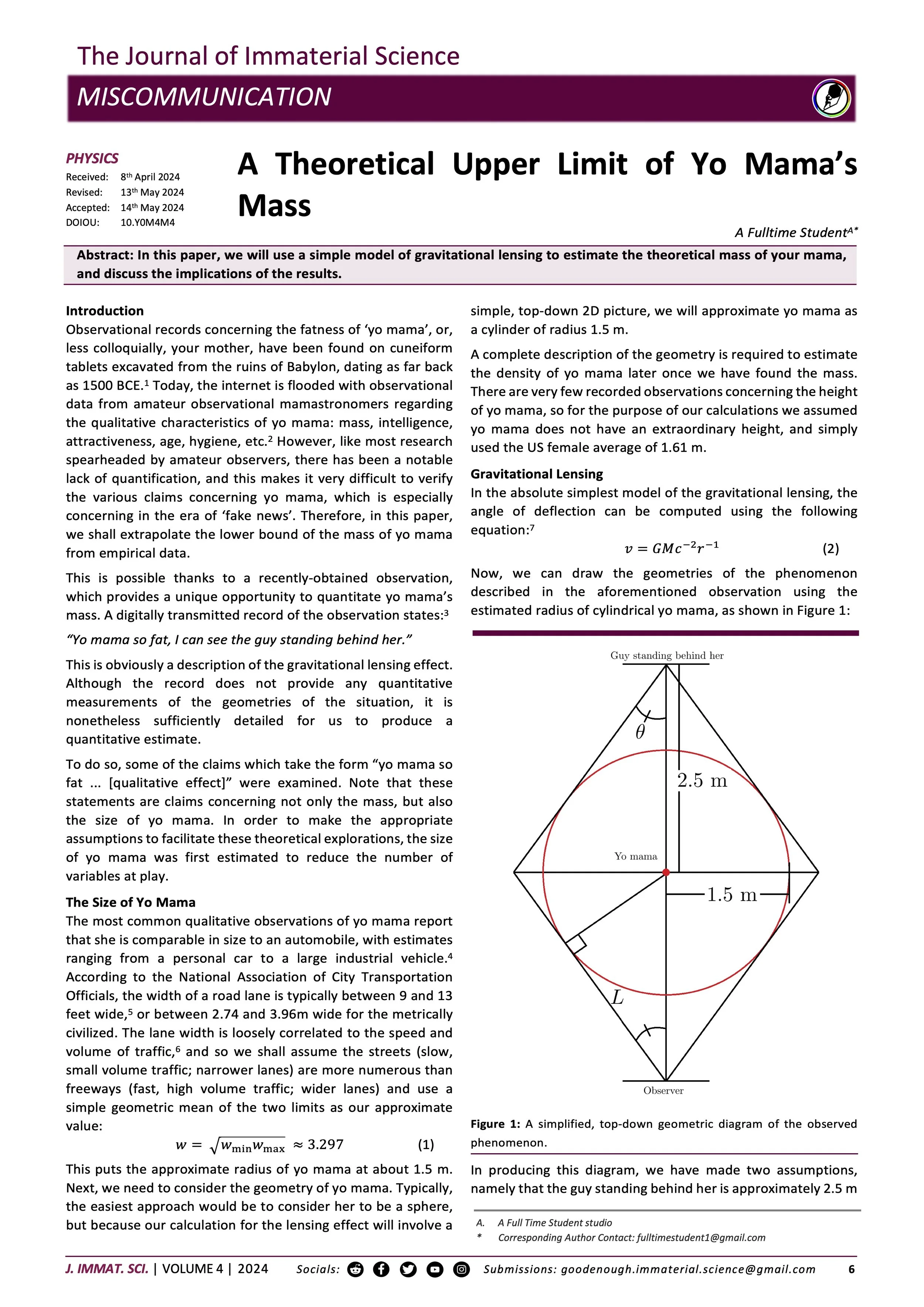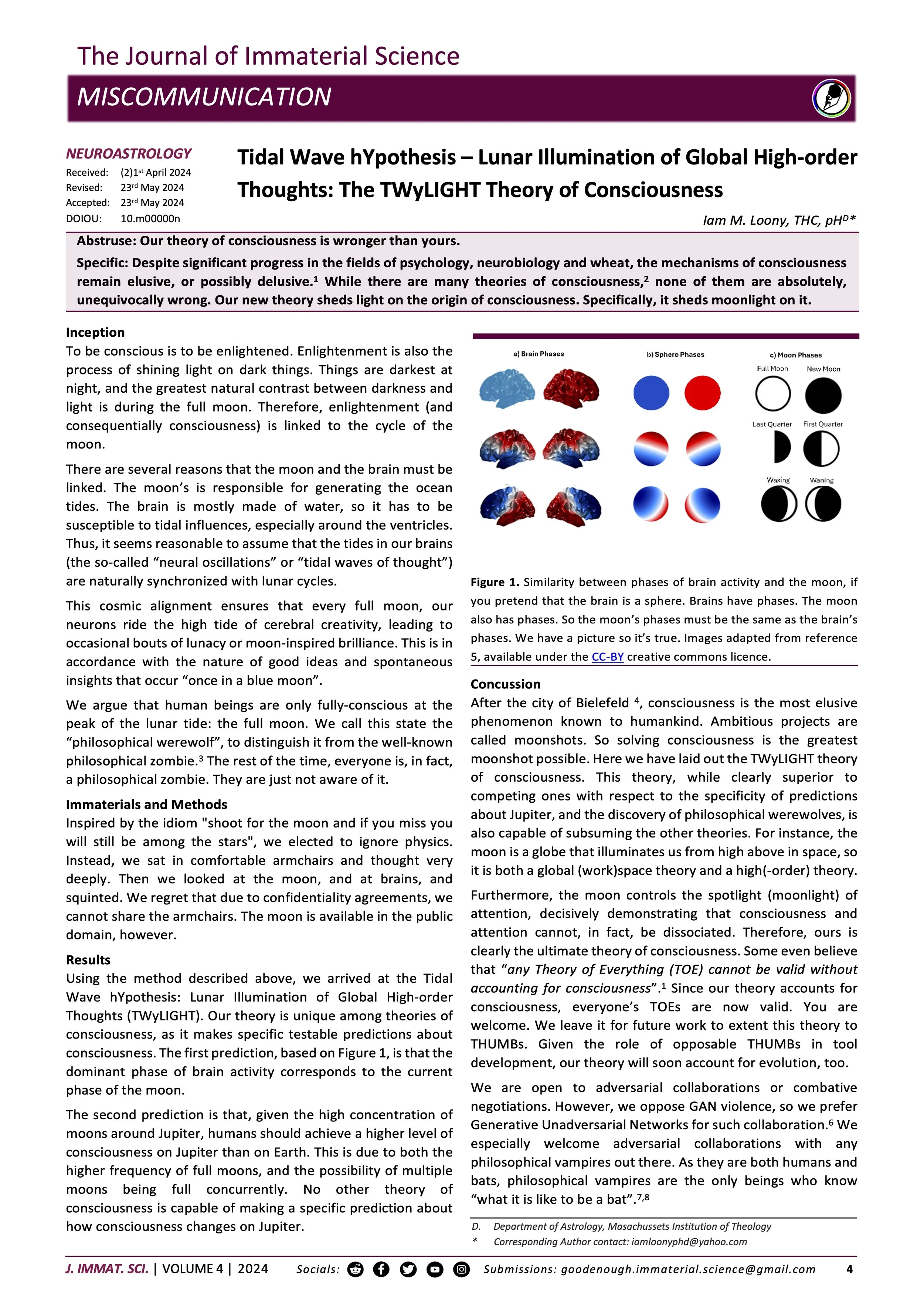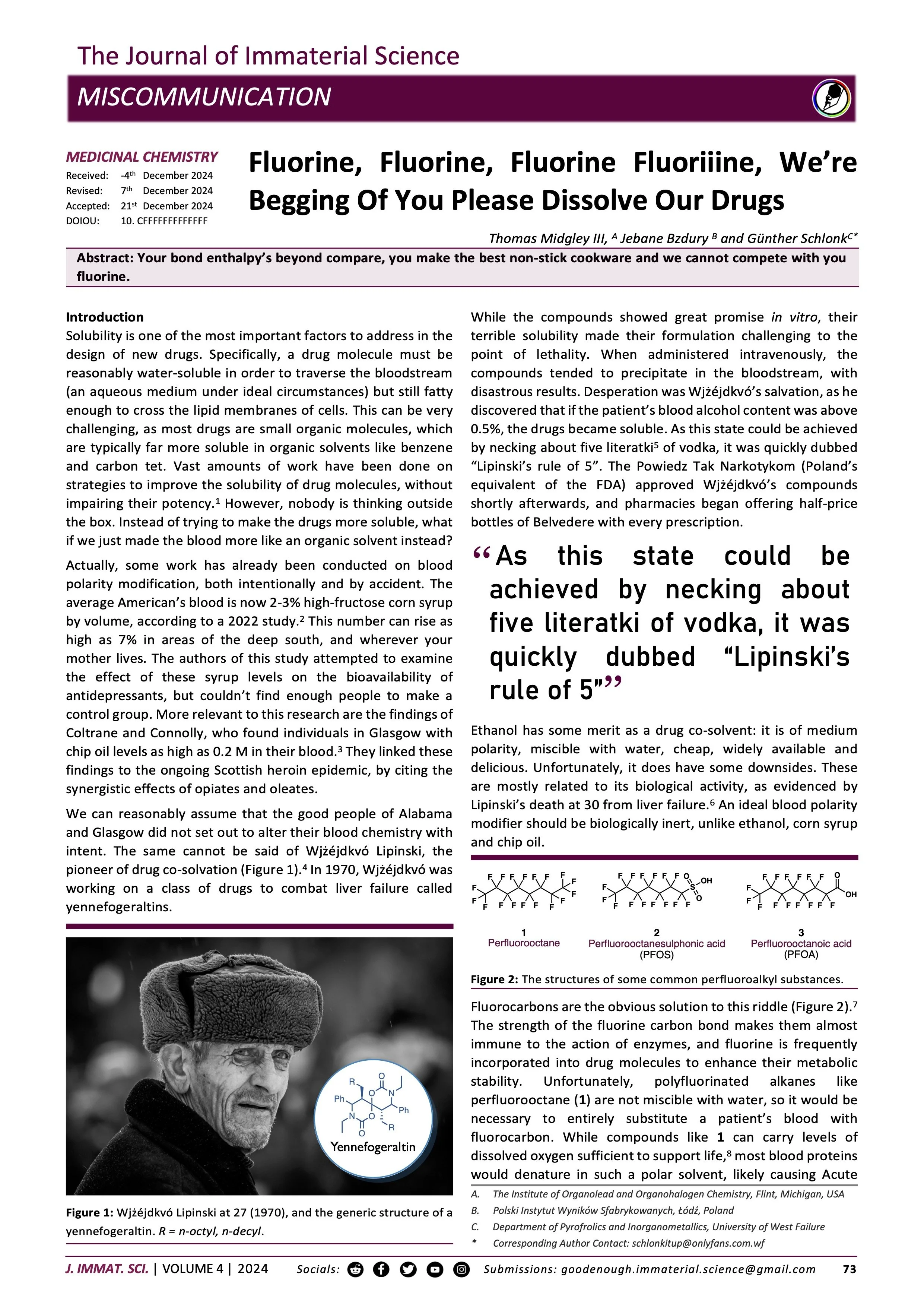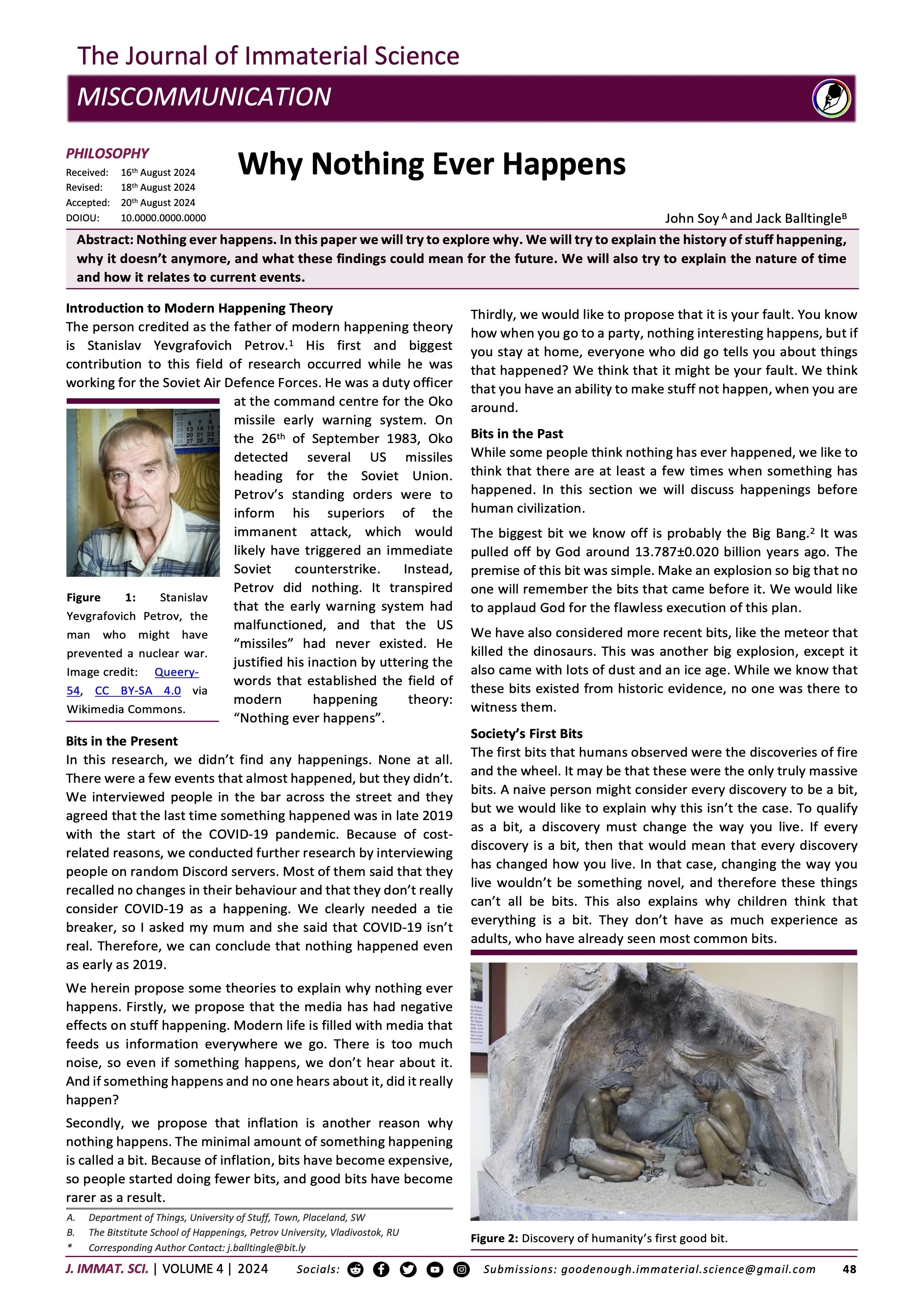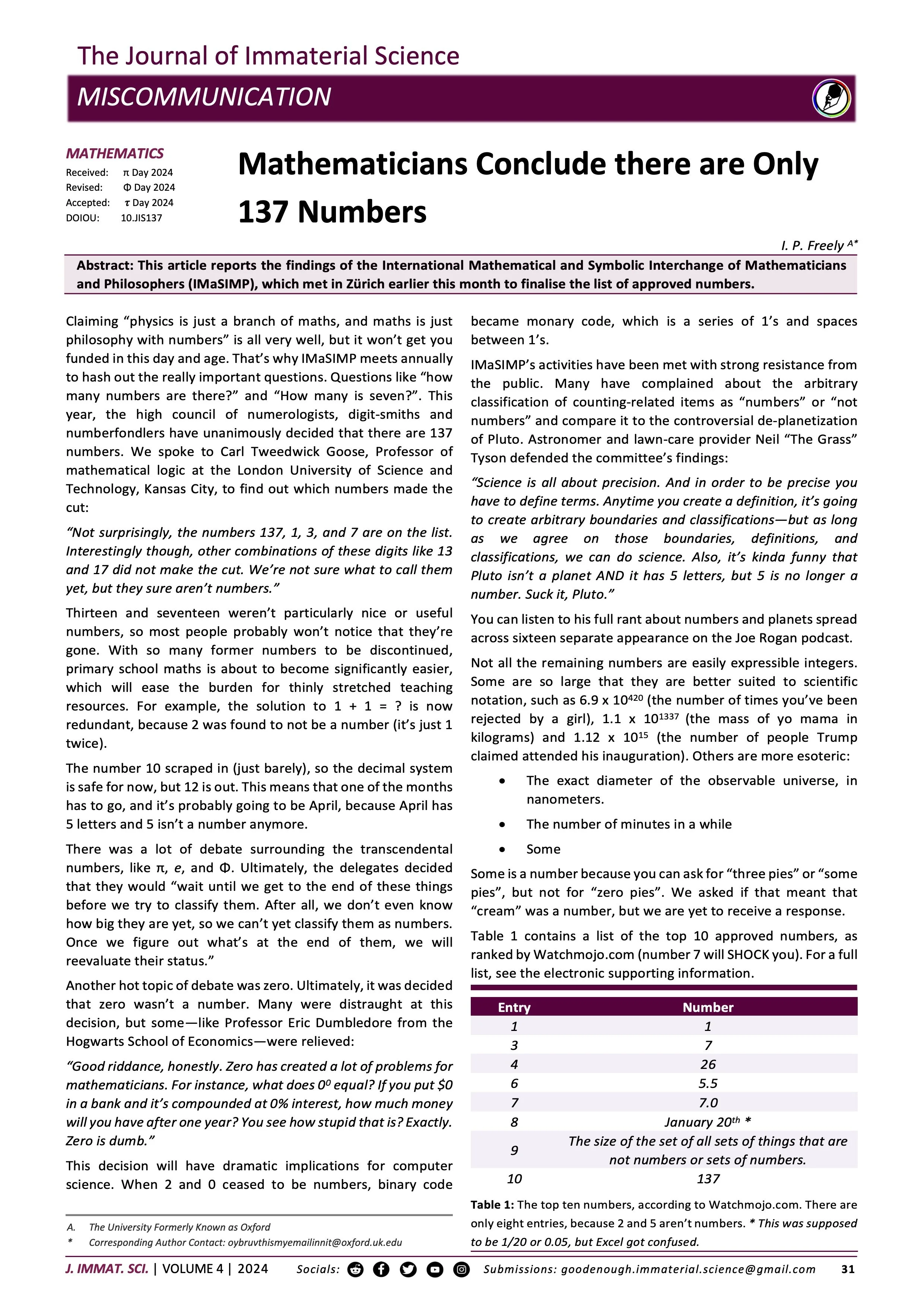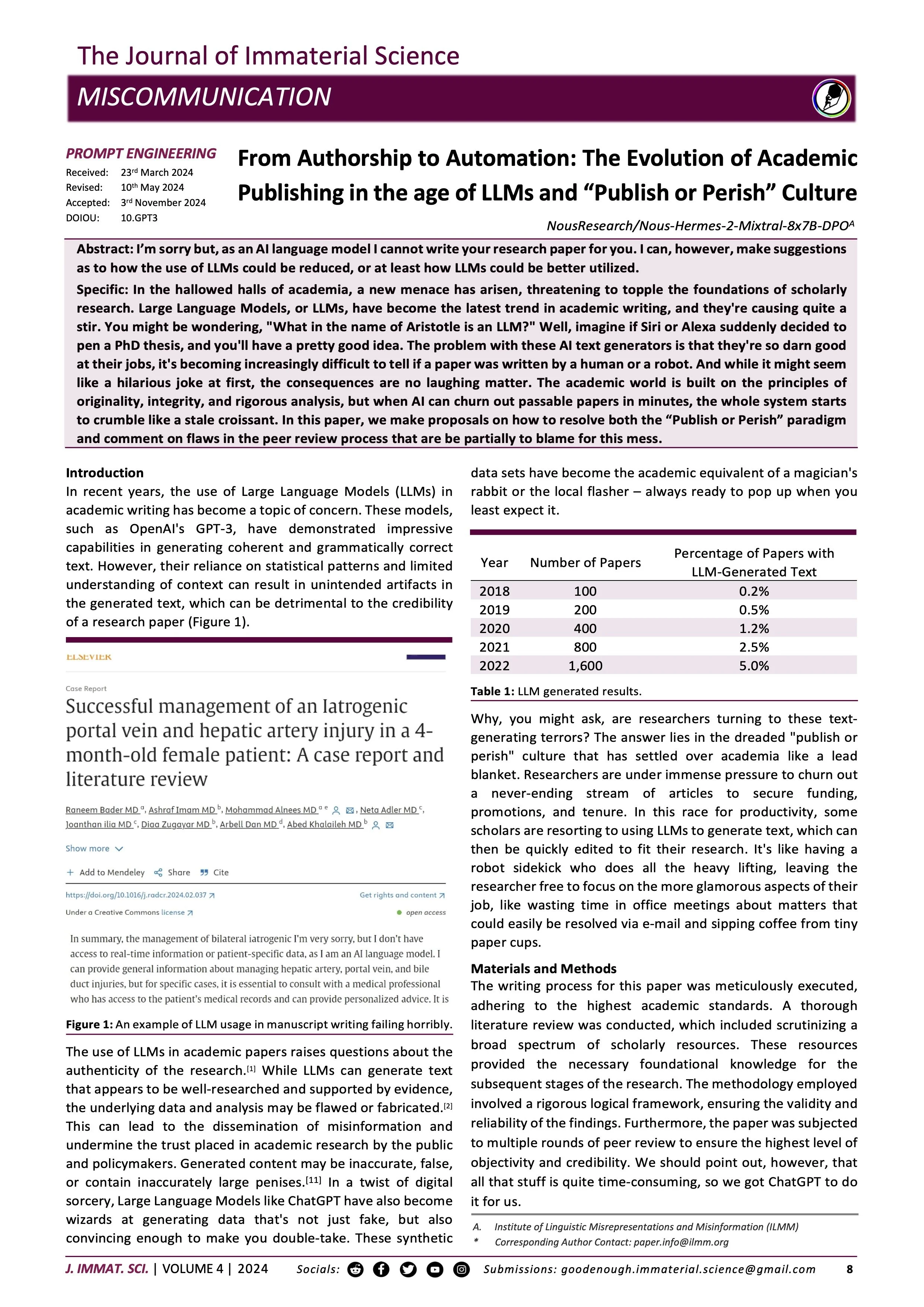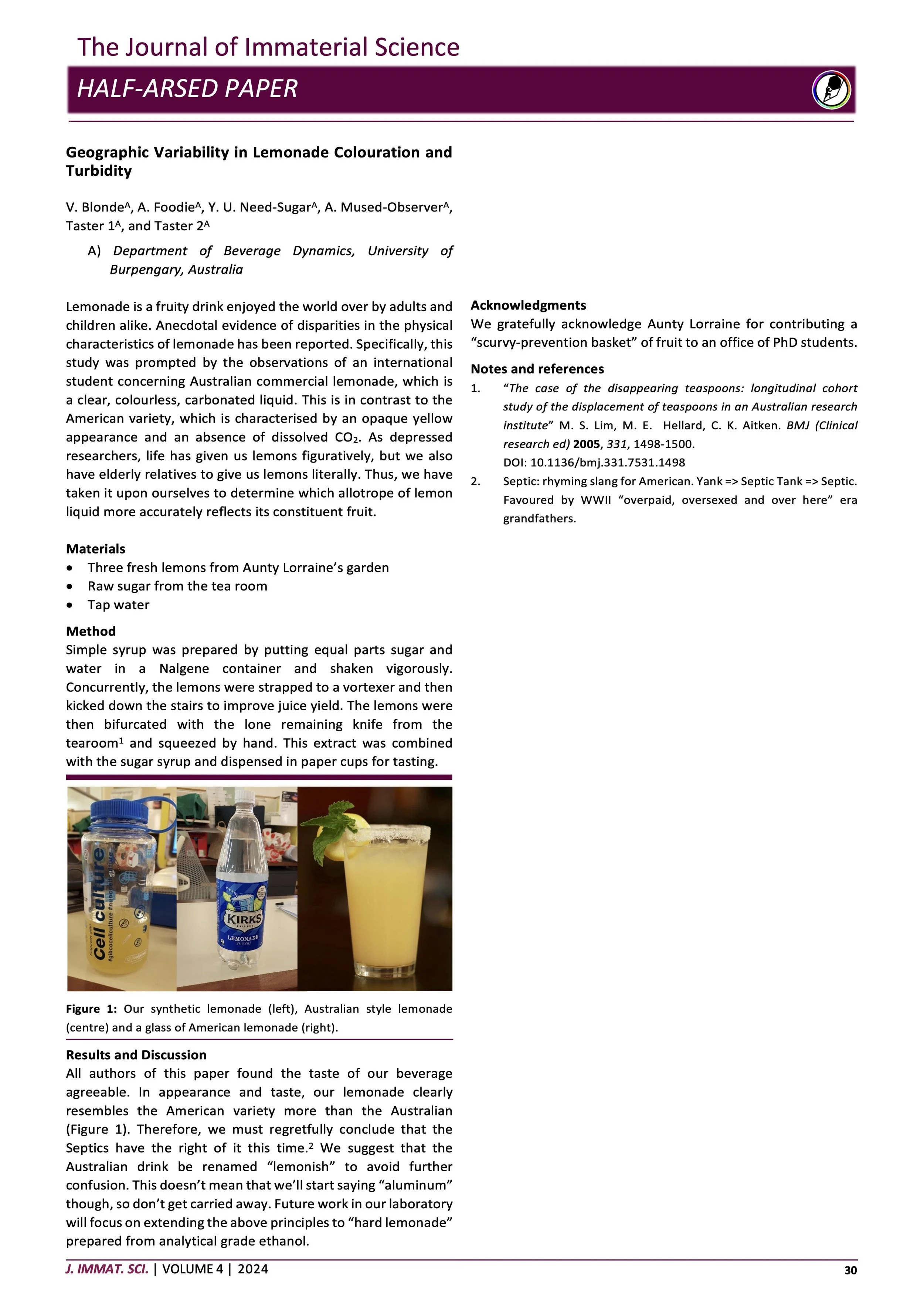2024
A Theoretical Upper Limit of Yo Mama’s Mass
In this paper, we will use a simple model of gravitational lensing to estimate the theoretical mass of your mama, and discuss the implications of the results.
Tidal Wave hYpothesis – Lunar Illumination of Global High-order Thoughts: The TWyLIGHT Theory of Consciousness
Despite significant progress in the fields of psychology, neurobiology and wheat, the mechanisms of consciousness remain elusive, or possibly delusive. While there are many theories of consciousness, none of them are absolutely, unequivocally wrong. Our new theory sheds light on the origin of consciousness. Specifically, it sheds moonlight on it.
Strongest Ever Chemical Bond Observed Between Borosilicate Glass and Organic Tar
Have you ever stuffed up a reaction so badly that it was more interesting than the original experiment?
Ejaculation and the Tunnel Effect: Proving the Existence of God with Science
Boredom due to a lack of romantic partners can drive people mad. The traditional remedies for this condition are science and religion. We decided to mix the two together, and now we’re ready to enter the kingdom of heaven.
Solid-Phase Peptide Synthesis on a Mid-Century Modern Table Support
Scientists are very fond of talking about the importance of serendipity in research. This usually means one of two things. The first thing is “sure, my work appears to be incredibly niche and pointless, but don’t discount the possibility that I’ll stumble over a cure for cancer in the rectums of these worms I’m studying”. The second is “sometimes fuck-ups are salvageable, if you keep an open mind”. This paper is the latter sort of serendipity.
The Retro-Suzuki Reaction? A Palladium-Catalyzed Carbon-Carbon Decoupling of (Hetero)Biaryls
We report the development of a novel C-C decoupling reaction mediated by a palladium/bis(phosphine) catalyst system. This methodology is the first of its kind, and allows for the chemoselective scission of Ar-Ar bonds to give aryl halides and arylboronic esters.
Pumpkin Soup as a Fungal Culture Medium: Completing our Colleague’s Unfinished Experiment
We disclose the development of a novel pumpkin-based growth medium for fungiculture.
Fluorine, Fluorine, Fluorine Fluoriiine, We’re Begging Of You Please Dissolve Our Drugs
Your bond enthalpy’s beyond compare, you make the best non-stick cookware and we cannot compete with you fluorine.
A Novel Synthesis of C. majalis Fragrance
A novel perfume recipe, which you can smell in the dark.
Why Nothing Ever Happens
Nothing ever happens. In this paper we will try to explore why. We will try to explain the history of stuff happening, why it doesn’t anymore, and what these findings could mean for the future. We will also try to explain the nature of time and how it relates to current events.
Making the Most Out of Your Research Funding: Raney “Nickel”
When budgets tighten, chemists must become creative in how they use their funding. This has become particularly apparent in recent years, as rapid inflation has diminished the value of existing grants. We therefore propose that it is more cost effective to use money directly in reactions than to buy chemicals with it.
Should Neutron Stars be Added to the Periodic Table?
IUPAC currently recognises 118 chemical elements. The last twenty have half-lives shorter than Australian prime ministers, and are of equally limited utility to science. However, physicists have predicted that an island of nuclear stability may exist around element 126, containing long-lived isotopes. We propose that this island does exist, about 400 light-years away.
Mathematicians Conclude there are Only 137 Numbers
This article reports the findings of the International Mathematical and Symbolic Interchange of Mathematicians and Philosophers (IMaSIMP), which met in Zürich earlier this month to finalise the list of approved numbers.
Monolithium Glutamate: Eat Your Way Out Of Depression
In the early 1800’s, British colonial endeavours in India were impeded by high rates of malaria. Innovative officers solved this problem by taking quinine (an effective but foul-tasting medicine) and adding gin to make it palatable. Thus, the gin and tonic was born, India was colonised, and alcoholic larceny became a British national pastime. Herein, we apply the same principle to treating major depressive disorder, hopefully with less divisive results.
Evaluating the Theoretical Impact Force of Mike Tyson’s Punch on Poultry: A Quantitative Analysis
This study applies thermodynamics and biomechanics to calculate the energy required to cook a chicken through kinetic impact. Starting from established models of thermal energy transfer, it determines the mechanical energy necessary to raise a chicken’s temperature to a cooked state. The analysis then quantifies the force and energy output of Mike Tyson’s punches to estimate how many impacts would achieve the same thermal result, as well as proposing a new unit of energy to better communicate what it feels like to be punched in the face by Mike Tyson.
From Authorship to Automation: The Evolution of Academic Publishing in the age of LLMs and “Publish or Perish” Culture
I’m sorry but, as an AI language model I cannot write your research paper for you. I can, however, make suggestions as to how the use of LLMs could be reduced, or at least how LLMs could be better utilized.
“Its Complicated”: Love Pyramids, Love in the Seventh Dimension and other Geometric Romances
Abstract: In this paper I gaslight myself to believe that my senpai loving another classmate is a good thing. Specific: Love Triangles are so 1990s. TV, trashy romance novels and other media need to get with the times and give us more complex romantic relationships. This paper presents novel romance stories for novel romance stories and visualizations of such relationships until I don’t know how to anymore. We propose that the only good love stories are incomprehensible love stories.
Geographic Variability in Lemonade Colouration and Turbidity
We must regretfully conclude that the Septics have the right of it this time.
Applications of Lemons in Organic Synthesis
If you liked palladium-on-carbon, you’ll love the all-new palladium-on-lemon!


